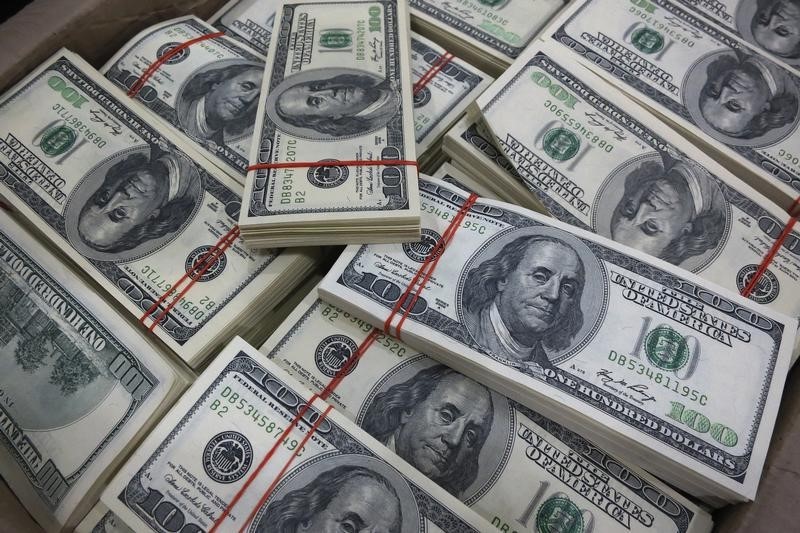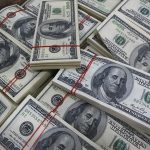
At 04:00 ET (09:00 GMT), the Dollar Index, which tracks the greenback against a basket of six other currencies, traded 0.1% higher to 102.817, just below last week’s peak, which was its highest since mid-August.
The dollar has been boosted as traders reduced bets on further outsized rate cuts by the Federal Reserve at its remaining meetings this year following the strong payrolls report and an uptick in the consumer price index.
Markets will get another update on the health of the U.S. consumer on Thursday, with investors hoping retail sales data will offer further insight into an economy that is turning out to be far more resilient than many had expected.
Ahead of that, investors will also get a chance to hear from a handful of Fed officials in the coming days. Governor Christopher Waller, Minneapolis Fed President Neel Kashkari are expected to speak later on Monday, and there is strong interest in what they might say about the central bank’s rate outlook.
“We do have a few Fed speakers this week who could firm up the idea of two 25bp Fed cuts this year – which might prove very slightly dollar negative given current market pricing,” said analysts at ING, in a note.
In Europe, EUR/USD traded 0.1% lower to 1.0928, ahead of Thursday’s policy-setting meeting by the European Central Bank, which is expected to result in another cut of 25 basis points.
Eurozone business activity unexpectedly contracted in September, while inflation dropped below the ECB’s 2% target – data which suggests that the eurozone economy is in worse shape than when the policymakers last met.
“If the ECB does not cut in October, the market will think that the central bank is behind the curve and potentially making a policy error,” said Deutsche Bank chief European economist Mark Wall.
GBP/USD edged lower to 1.3062, at the start of a big week for UK economic data.
“This week’s release of UK jobs and especially inflation data on Wednesday could have a decent say in the pricing of the Bank of England’s easing cycle and sterling,” said ING.
Britain’s economy returned to growth in August after two consecutive months of no growth, but the September inflation release is expected to fall to 1.9% on an annual basis, below the Bank of England’s medium-term target.
BoE Governor Andrew Bailey has said the Bank could become a ‘bit more activist’ should inflation data allow it, and a fall of this magnitude (from 2.2% in August) may well allow it this week, ING added.
USD/CNY rose 0.2% to 7.0795, with the yuan hit by data showing Chinese consumer inflation grew less than expected in September, while producer inflation marked a 23rd consecutive month of contraction.
Sentiment towards China was also dented by mixed cues on fiscal stimulus.
The finance ministry said in a weekend briefing that it did plan to dole out fiscal support, including more debt issuance and assistance for provincial governments.
But the briefing left out key details on the planned measures, specifically their scope and timing, which spurred limited optimism over more stimulus.
USD/JPY rose 0.2% to 149.44, with the yen weakening slightly amid persistent doubts over the Bank of Japan’s ability to hike interest rates further, although a Japanese holiday has limited activity.
To read the full article, Click Here

